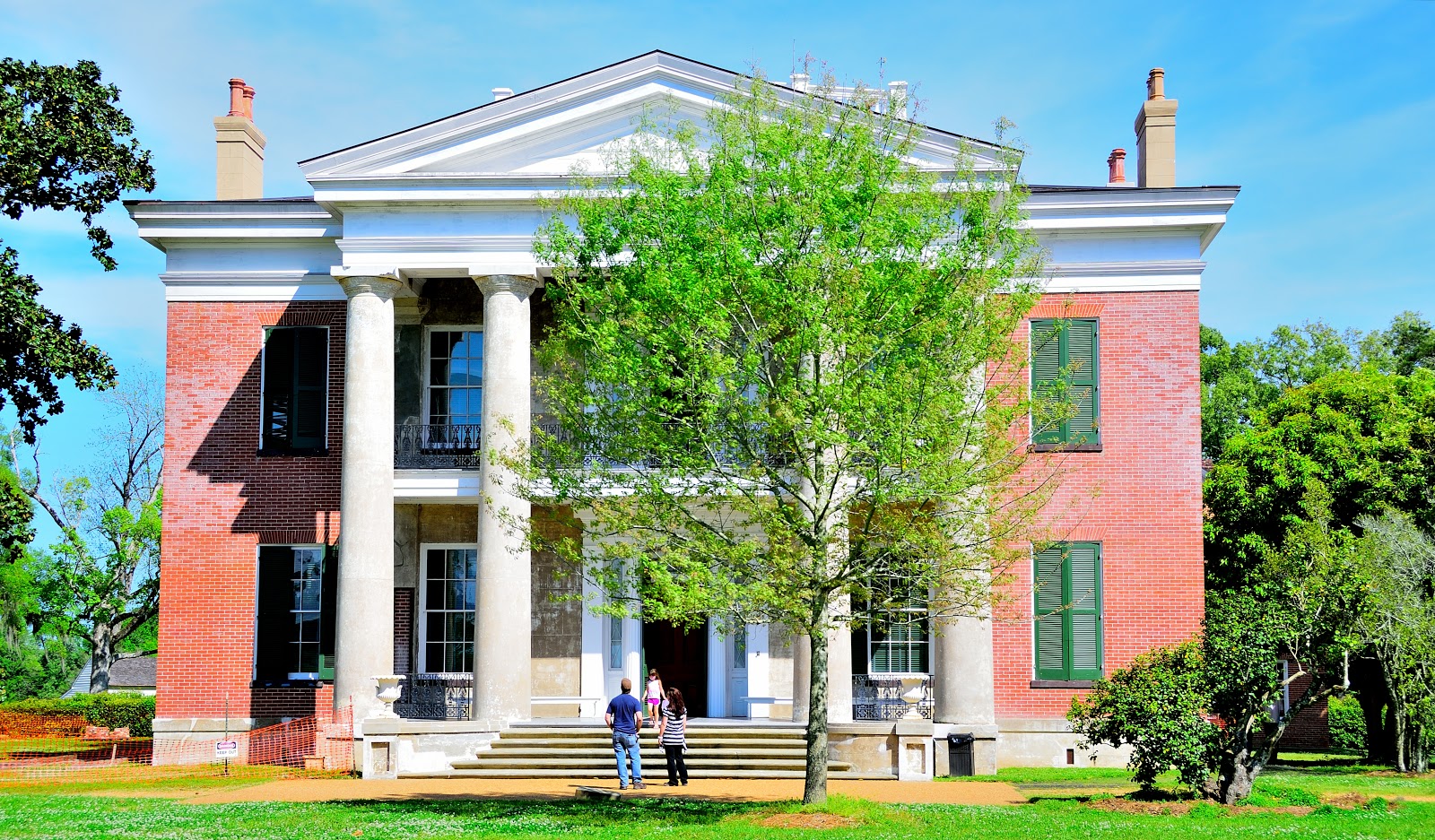Natchez Mississippi - Day One
On leaving Louisiana, we entered Mississippi at the city of Natchez. This is a city rich in history, especially that of the Antebellum Period. This was the Plantation Era prior to the Civil War. A plantation was simply a farm that used slave labor. Plantation owners were, for the most part, wealthy. During the Antebellum Period seventy-five percent of all of the millionaires in the states and territories, lived in Natchez.
 |
| Melrose House - U.S. National Park Services |
Antebellum was also a way of life. It meant, "I'm filthy stinking rich, and I'm gonna let everybody know it." Men built mansions worthy of aristocracy.
 |
| Typical Antebellum Dress |
Although women of this period were second class citizens, having no power and not being allowed to vote, they were allowed to spend money. Lots of money. Women furnished the mansions with every kind of extravagance. There were household slaves, to handle the domestic duties, including raising the family's children, so the wives had time to "keep up appearances" by shopping for the best fashions, furnishings and hosting social events and balls.
 |
The chandelier, the drapery crowns and the mirror frame are all covered in gold.
Even the wallpaper has gold in it.
|
 |
| The Dining Room |
Click on the picture of the dining room above to enlarge it and notice the details. See the china? The Lady of the House (Lady Antebellum?) bought it while on a visit to Europe. She bought over ONE-THOUSAND PIECES for this one set alone. She came home with three sets.
OK, same picture, new subject. See the brown paddle shaped piece of wood hanging over the dining table? That is a Punkah, from India. It's a fan. The Punkah is operated by pulling on the gilded cord you see to the left of the fireplace. In the Antebellum period, the Punkah was operated by a slave. Not just any slave, but a male who has been specifically trained, since he was a toddler, to operate the fan properly. You see, in the summer, it gets really hot in the deep south, and you can't truly be a proper hostess if your guests are uncomfortable, or worse, sweaty. Why it's enough to give a Lady the vapors! So the slave who operated the Punkah had to do it with such finesse, that the guests were cooled, but the food on the table wasn't; that the candles wouldn't be blown out, or even flicker. A proper hostess couldn't let her guest be seen in a bad light!
 |
| The Privy |
 |
| The Kitchen Building |
From the rear of the main house stands another building. The first floor houses the kitchen and the dairy. You wanted the kitchen in a separate building for two reasons. First, the main house remains unharmed if the kitchen burns down. Second, you want to keep all the heat the kitchen generates out of the main house. The second floor is the living quarters for the six household slaves. I imagine that living above the kitchen made their quarters pretty hot in the summer. I'm guessing that six people living in such a small place added to the discomfort.
The non-domestic slaves lived in buildings further out back. These would have been the groundskeepers, the stable attendants, maintenance men, carriage drivers, and general laborers. There was no farming done on the house grounds. This was all strictly for show. Farming was done on the plantations far away, sometimes in other states.
 |
| A Slave House |
 |
| Another Slave House |
 |
| The Stable |
 |
| The Carriage House |
We really enjoyed our time in Natchez, and we learned a lot. Our guide at the Melrose House was a National Parks Services Ranger named Barney. Barney spent an hour with us just touring the main house. Having two degrees in history, he was able to offer details of not only the house, but the city, the era, and what the day to day lives of the inhabitants was like.
We also toured the house of William Johnson, known as "The Barber of Natchez". William Johnson began his life as a slave, but was given his freedom. He became a prominent citizen in Free Black society, and owned sixteen slaves. What makes Johnson so special in terms of history, is that, when he bought and opened his barbershop, he began to keep an extremely detailed diary about his life, and the dealings he had with others. As the barbershop was the pub of Free Black society, Williams had his finger on the pulse of Natchez. His diary still exists today.
There is just too much about Natchez, it's citizens and the Antebellum period to try to write in a blog. My suggestion: Visit Natchez Mississippi.
No comments:
Post a Comment